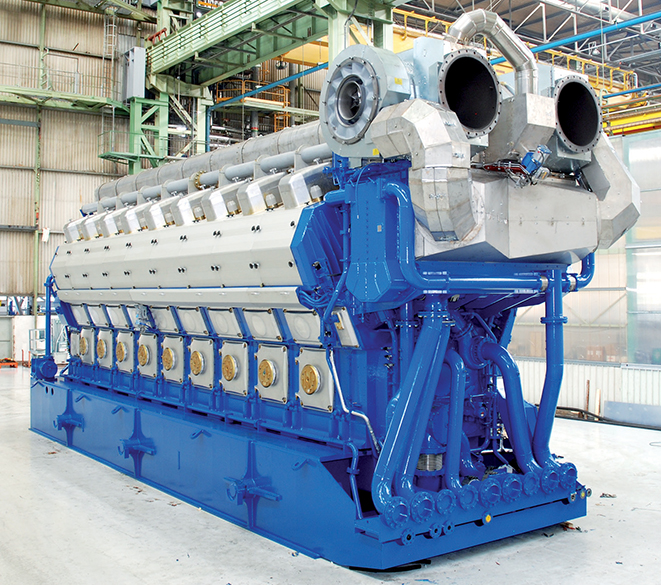Maximize Your Investment with Engines For Africa's Array
Maximize Your Investment with Engines For Africa's Array
Blog Article
A Full Guide to Picking the Right Engine for Your Project
Picking the proper engine for your project is a crucial decision that can substantially influence its overall success. It is necessary to meticulously specify your task needs, examine performance needs, and consider user-friendliness along with various other important variables. Furthermore, comprehending the neighborhood support available and scrutinizing price implications can better fine-tune your option. Each of these components plays an essential role in making sure that your chosen engine not only meets prompt objectives but also straightens with lasting goals. As we check out these considerations, you might locate that the subtleties of each element expose greater than originally expected.
Define Your Project Needs
Defining your job requires is an important action in selecting the ideal engine for successful application. A comprehensive understanding of your project's purposes will certainly assist you in determining the features and capacities required from an engine. Begin by outlining the scope of your job, including the desired performance, target audience, and the specific outcomes you aim to achieve.
Following, think about the technical needs that straighten with your project goals. This includes reviewing the compatibility of the engine with existing systems, as well as the shows languages and structures that will be utilized. Furthermore, assess the level of scalability needed to fit future development or changes in demand.
Budget restraints likewise play an essential function in specifying your project needs. Develop a clear economic framework to assist your decision-making procedure, making certain that the engine selected fits within your budget while providing the required functionality.
Evaluate Efficiency Demands

Next, think about the scalability of the engine. Evaluate whether it can manage boosted work as your project expands. Engines that sustain straight scaling are frequently more suitable for bigger applications. In addition, examine the engine's efficiency under different conditions, such as peak usage scenarios, to ensure it satisfies your integrity criteria.
Take Into Consideration Ease of Usage
While technological requirements are important, the convenience of use of an engine can considerably influence the development process and general job success. An user-friendly user interface, clear documentation, and structured process can dramatically lower the learning contour for designers, enabling them to concentrate on creative thinking and analytical instead of grappling with complicated tools.
When reviewing an engine's simplicity of use, consider the onboarding click site experience. A well-structured intro, complete with tutorials and sample projects, can assist in a smoother change for brand-new users. In addition, the clearness and comprehensiveness of the engine's paperwork play a vital duty; detailed guides and API referrals can equip designers to fix and apply functions effectively.
An engine that enables for simple adjustments can be a lot more user-friendly, as developers can tailor it to fit their details requirements without comprehensive trouble. Inevitably, picking an engine that prioritizes convenience of use can lead to a more effective and satisfying advancement experience.
Assess Community and Support
The strength of an engine's community and assistance network can greatly influence a programmer's experience and success. When evaluating an engine, take into consideration the size and task degree of its community.
Moreover, examine the schedule of main assistance networks. Reputable paperwork, receptive consumer support, and routine updates are necessary for addressing technical problems and maintaining your job on course. Engines For Africa. Active communities also cultivate cooperation, supplying opportunities for networking and comments, which can be indispensable, particularly for independent programmers or little groups
Additionally, examine the presence of community-run events, such as hackathons or meetups. These gatherings can enrich your understanding of the engine while attaching you with prospective collaborators and skilled customers. In summary, a durable neighborhood and support group not just improve development yet additionally produce an atmosphere conducive to discovering and development, eventually boosting the possibility of your job's success.
Contrast Cost and Licensing Choices
Spending plan factors to consider play a vital role in selecting the best engine for your job, as the price and licensing choices can considerably impact navigate here both short-term expenses and long-lasting feasibility. Engines For Africa. Various engines offer differing rates structures, which can include single purchase fees, registration designs, or revenue-sharing agreements based upon your project's earnings

Licensing choices likewise vary substantially. Some engines are open-source, providing adaptability and community-driven assistance, while others might call for proprietary licenses that limit use and distribution. Recognizing the effects of each licensing version is crucial, as it impacts possession rights, future scalability, and prospective lawful responsibilities.
Verdict
To conclude, selecting the suitable engine for a task demands an extensive assessment of specified project requirements, efficiency requirements, ease of usage, area support, and expense considerations. By methodically dealing with these essential aspects, decision-makers can ensure alignment with both future and present job needs. An educated option ultimately enhances the probability of job success, making it possible for efficient resource allotment and making the most of possible end results within the specified budgetary constraints.
Choosing the ideal engine for your task is an essential decision that can significantly impact its overall success.Defining your job needs is an essential step in picking the proper engine for successful implementation. A comprehensive understanding of your job's goals will certainly you could look here guide you in determining the capabilities and features needed from an engine.Once you have a clear understanding of your task needs, the next action is to examine the efficiency requirements of the engine.In verdict, selecting the proper engine for a project necessitates a thorough assessment of defined project requirements, performance needs, convenience of usage, area support, and expense factors to consider.
Report this page